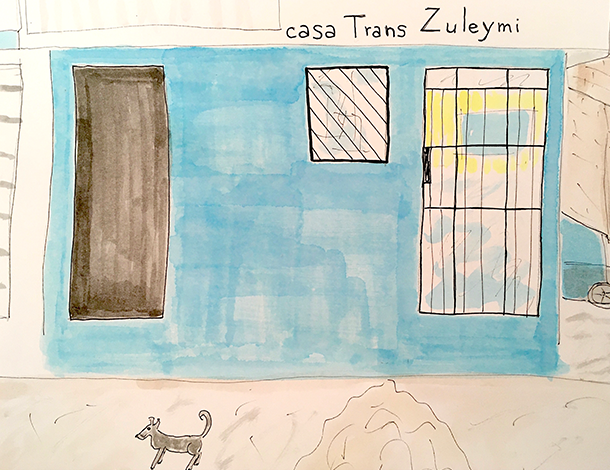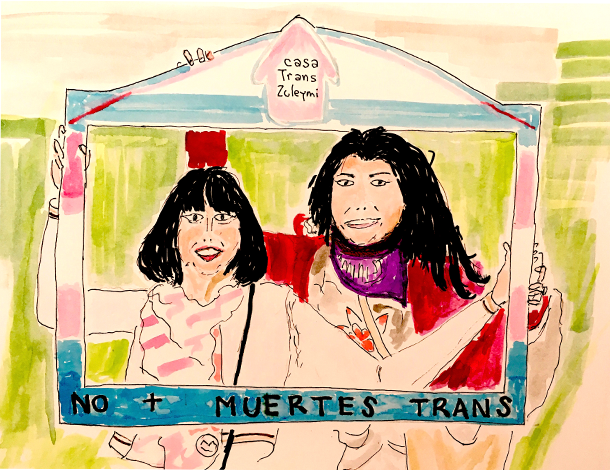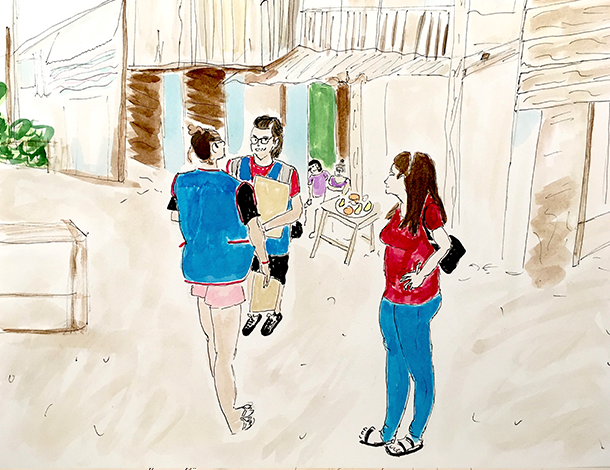The trans house confirms the transformative force of social movements: if no one helps nor provides for us, if the State ignores us, then we’ll do it ourselves.

The blue house keeps its doors open in the middle of a neighborhood that seems to be in constant construction, alongside the train tracks in the Ate-Vitarte district of Lima.
The blue house is "Zuleymi"*, the first and only trans house in Peru.
Since 2016, it has provided refuge, protecting migrant trans women, girls, and teens, those who recently arrived, and those who the state has left behind. It provides a space for everyone - to stay for a while, recuperate, find others who are the same and who help them to become empowered, to believe in themselves again, to share experiences for the first time, and start to solve their problems.
Since its creation, the blue house has provided shelter to 76 migrant trans women from Venezuela, along with 232 from jungle areas, Indigenous communities, and the north coast of Peru. Also, 632 trans people from Lima and Callao cities visited the house.
Miluska Luzquiños, the coordinator of the house, adds that since 2017, "we've handled eight cases of trans girls, victims of violence and trafficking. Along with the Ministry of Women and Vulnerable Populations, we've been able to reintegrate three to their families, two are under the care of the National Integrated Program for Family Welfare – INABIF, and we're directly accompanying the remaining three.
"Our work in the house is our feminist reality. It's sustained through self-management, sorority, self, and collective care.", explains Miluska.

The house confirms the transformative force of social movements: if no one helps nor provides for us, if the State ignores us, then we’ll do it ourselves.
The trans women who live at Zuleymi are organized.
They not only support and care for each other, but they also ask what else is needed to claim and enjoy rights fully.
There they think about their present and their future. How can we access health services? How can we access education? How can we get out of poverty? And the constant demand that they loudly call out:
“We want to see our identity reflected in our documents.”
The house is a new world in the middle of a neighborhood that seems to be in constant construction. It’s collective resistance, a way to struggle, challenge and transform within “a macho and patriarchal country” as the compañeras point out.
The organized trans women in this house have started to shake up and transform their lives and that of others to the rhythm of feminist warrior dances.

*The house is named in commemoration of Zuleymi Aylen Sánchez Cárdenas, a 14-year old trans teenager who was killed at the door of their home in 2016. The trans house opened in the same year. The trans activist Miluska Luzquiños, current coordinator of the house, received the French-German Award for Human Rights and Rule of Law in December 2019.
2224x1253.jpg)